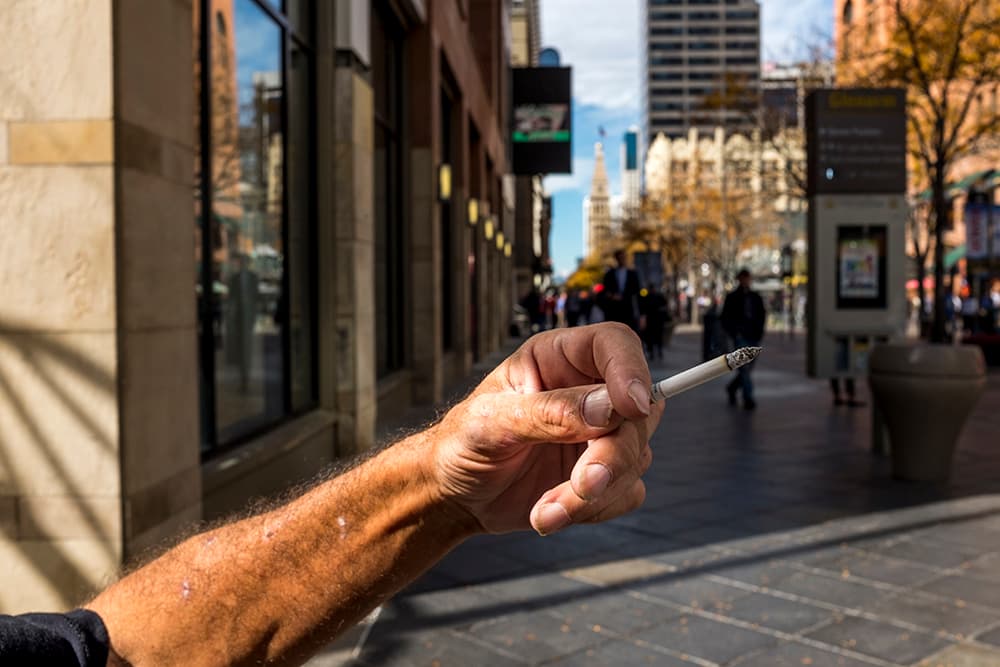
There was no discussion and no objections when the Denver City Council gave initial approval Monday night to a ban on smoking and vaping on the 16th Street Mall.
The ban had appeared to be a tad more controversial when it was heard earlier this month by the City Council's housing and safety committee, but the council members who had the most concerns about it said Monday they aren't sure they have the votes for a sunset clause.
The Breathe Easy Ordinance would allow police officers to issue tickets up to $100 to anyone smoking or using an e-cigarette on the mall or within 50 feet of either edge. It was introduced by Council President Albus Brooks, who said his main concern is the health and welfare of the people of Denver who have to breathe secondhand smoke as they walk down the Mall. It also has the support of the Downtown Denver Partnership.
Denver City Council holds a final vote on Monday, Oct. 30. There is no public hearing scheduled.
The people who object to the ordinance mostly fear it will be targeted disproportionately at homeless people and be used to move them off the Mall into less visible spaces.
There could yet be some amendments to this proposal when it comes time for a second and final vote. Councilman Paul Kashmann said he'd like to see a sunset clause that would let the law expire in a few years unless the City Council makes an active decision to continue it, but he's still debating whether to introduce that change. More likely, he'll ask for an amendment to gather data on who is getting ticketed during the first few years of enforcement. However, without the sunset clause, that data request has less teeth, he said.
Just about everyone on council is OK with a smoking ban, but some members have more concern than others about how it's enforced.
Kashmann said he suspects homeless people and the working poor will be more likely to get tickets, "rather than some tourist from Idaho smoking a Pall Mall."
"As long as it doesn't result in an arrestable offense," Councilman Paul López said he can live with a ban. However, he wants service workers to be able to take their smoke breaks on docks and in alleys without risking an expensive ticket.
"It's important that we know who is getting ticketed," he said. "Cause if it's the working class folks on their break ..."
Brooks said he's already asked the Denver Police Department to write data collection into its policy around the smoking ban, and that information will be reported each quarter to Kashmann's safety and housing committee.
But he has no interest in a sunset clause.
"If you do a sunset, why do the bill? This is about health and wellness," he said. "A sunset would say it's an issue now but it's not an issue in two years."
Homeless people who are ticketed generally will be assigned community service rather than have to pay the fine. Perhaps more significantly, if they blow it off entirely, it won't convert to a "failure to appear," something that can generate an arrest warrant and land people in jail.
Brooks said he's concerned that the focus on homeless people on the Mall -- both by their advocates and by people who want to see them moved off the Mall -- has become a distraction.
"I'm concerned that the message of what we're trying to do is being altered," he said.












